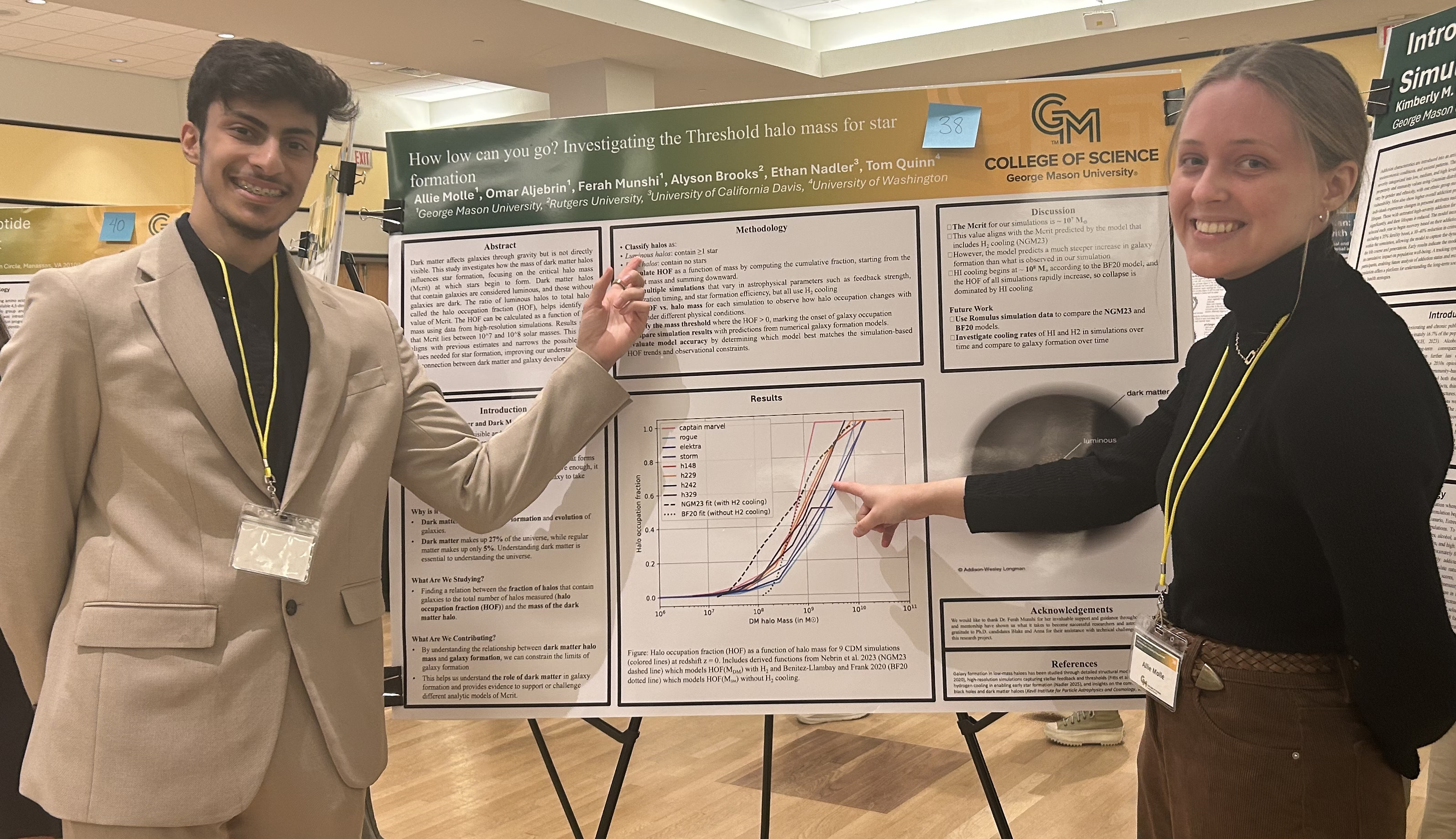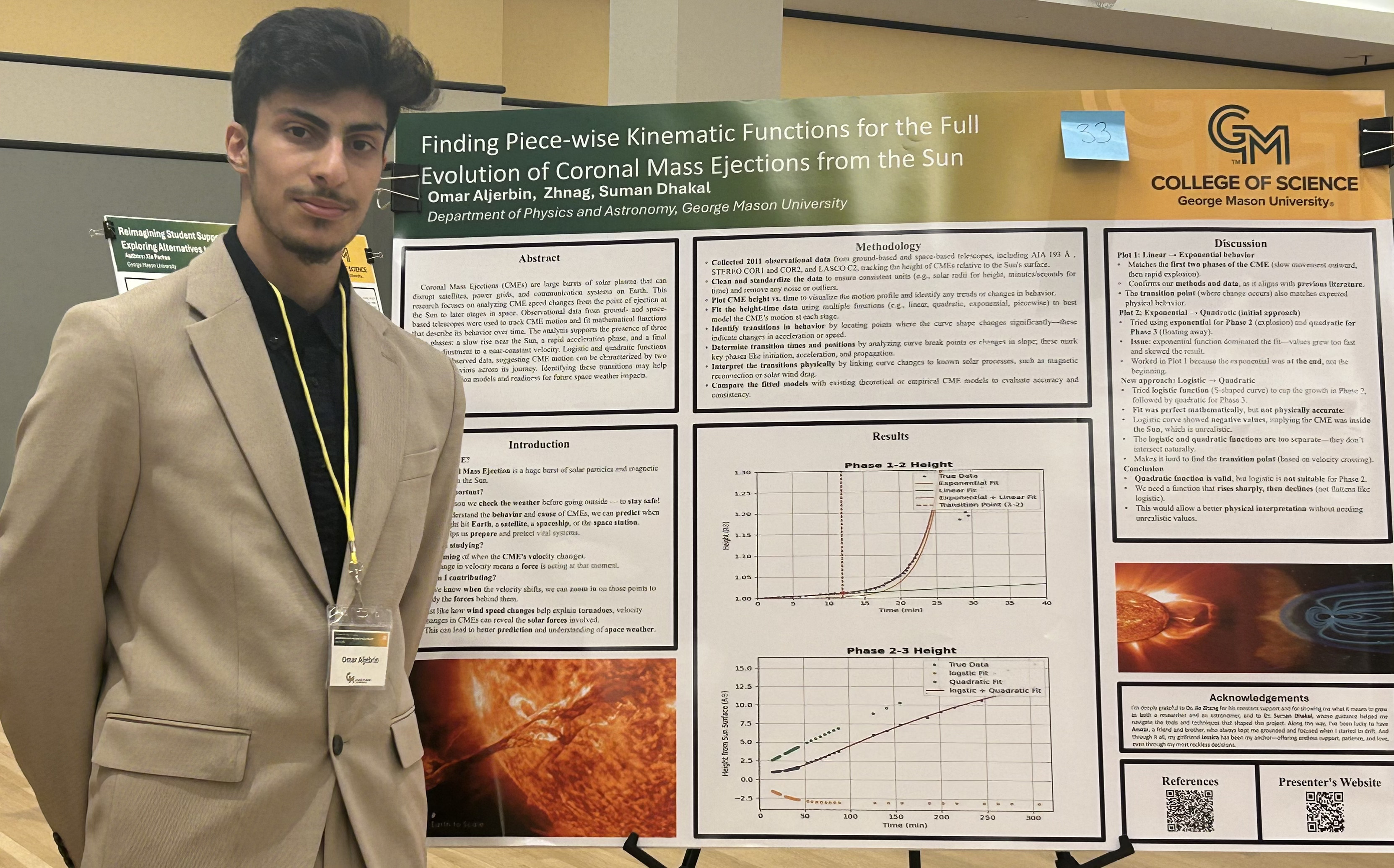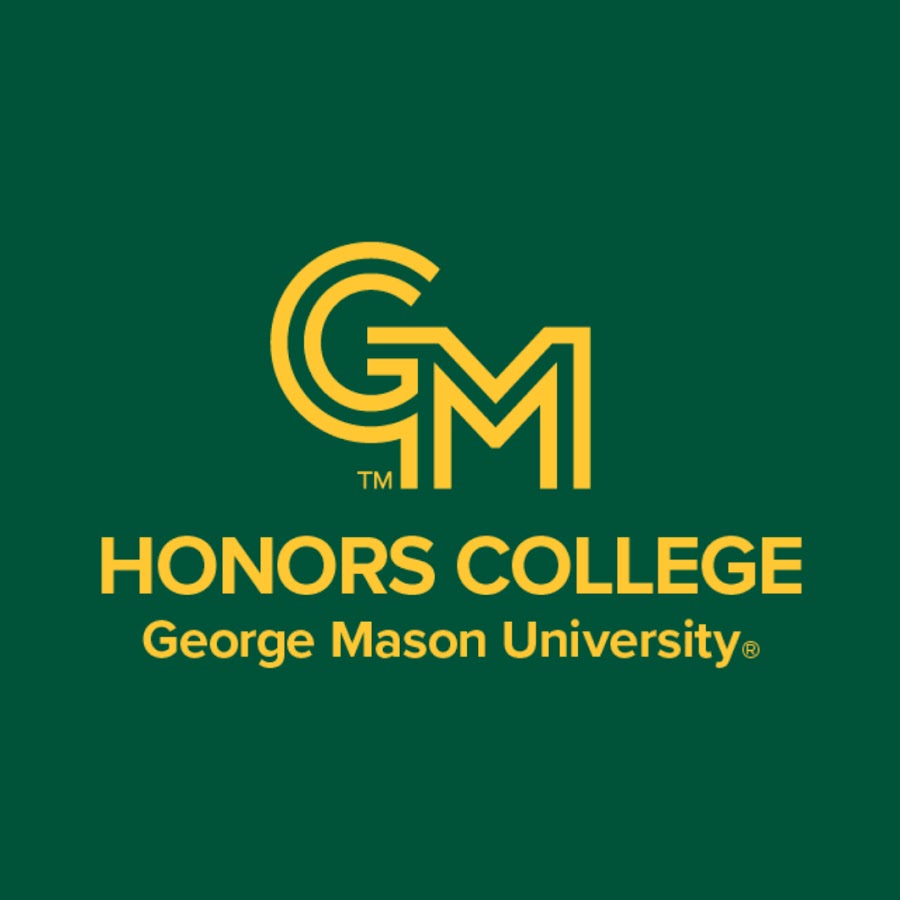Conferences & Talks
2025
College of Science Undergraduate Research Colloquium
- How Low Can You Go? Investigating the Threshold Halo Mass for Star Formation (First place in the Physical Sciences and Mathematics category)
 Dark matter affects galaxies through gravity but is not directly visible. This study investigates how the mass of dark matter halos influences star formation, focusing on the critical halo mass (Mcrit) at which stars begin to form. Dark matter halos that contain galaxies are considered luminous, and those without galaxies are dark. The ratio of luminous halos to total halos, called the halo occupation fraction (HOF), helps identify the value of Mcrit. The HOF can be calculated as a function of halo mass using data from high-resolution simulations. Results show that Mcrit lies between 10^7 and 10^8 solar masses. This range aligns with previous estimates and narrows the possible mass values needed for star formation, improving our understanding of the connection between dark matter and galaxy development.
Dark matter affects galaxies through gravity but is not directly visible. This study investigates how the mass of dark matter halos influences star formation, focusing on the critical halo mass (Mcrit) at which stars begin to form. Dark matter halos that contain galaxies are considered luminous, and those without galaxies are dark. The ratio of luminous halos to total halos, called the halo occupation fraction (HOF), helps identify the value of Mcrit. The HOF can be calculated as a function of halo mass using data from high-resolution simulations. Results show that Mcrit lies between 10^7 and 10^8 solar masses. This range aligns with previous estimates and narrows the possible mass values needed for star formation, improving our understanding of the connection between dark matter and galaxy development.
College of Science Undergraduate Research Colloquium:
- Finding Piece-wise Kinematic Functions for the Full Evolution of Coronal Mass Ejections from the Sun
 Coronal Mass Ejections (CMEs) are large bursts of solar plasma that can disrupt satellites, power grids, and communication systems on Earth. This research focuses on analyzing CME speed changes from the point of ejection at the Sun to later stages in space. Observational data from ground- and space-based telescopes were used to track CME motion and fit mathematical functions that describe its behavior over time. The analysis supports the presence of three main phases: a slow rise near the Sun, a rapid acceleration phase, and a final gradual adjustment to a near-constant velocity. Logistic and quadratic functions best fit the observed data, suggesting CME motion can be characterized by two dominant behaviors across its journey. Identifying these transitions may help improve prediction models and readiness for future space weather impacts.
Coronal Mass Ejections (CMEs) are large bursts of solar plasma that can disrupt satellites, power grids, and communication systems on Earth. This research focuses on analyzing CME speed changes from the point of ejection at the Sun to later stages in space. Observational data from ground- and space-based telescopes were used to track CME motion and fit mathematical functions that describe its behavior over time. The analysis supports the presence of three main phases: a slow rise near the Sun, a rapid acceleration phase, and a final gradual adjustment to a near-constant velocity. Logistic and quadratic functions best fit the observed data, suggesting CME motion can be characterized by two dominant behaviors across its journey. Identifying these transitions may help improve prediction models and readiness for future space weather impacts.
2024
Honors College Exhibition
- Machine Learning and Superconductors
 The Honors College Exhibition gathers the most outstanding research and projects from each class in the Honors College that are research-based or project-oriented, to be presented at the conference. This provides Honors College students with a larger platform to present their work. I had the privilege of having my research selected as one of the outstanding projects in my class, for which I presented my research on superconductors and machine learning. My work aims to answer the question: how can quantum machine learning improve the accuracy of critical temperature predictions for superconductors?
The Honors College Exhibition gathers the most outstanding research and projects from each class in the Honors College that are research-based or project-oriented, to be presented at the conference. This provides Honors College students with a larger platform to present their work. I had the privilege of having my research selected as one of the outstanding projects in my class, for which I presented my research on superconductors and machine learning. My work aims to answer the question: how can quantum machine learning improve the accuracy of critical temperature predictions for superconductors?